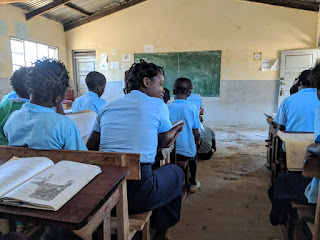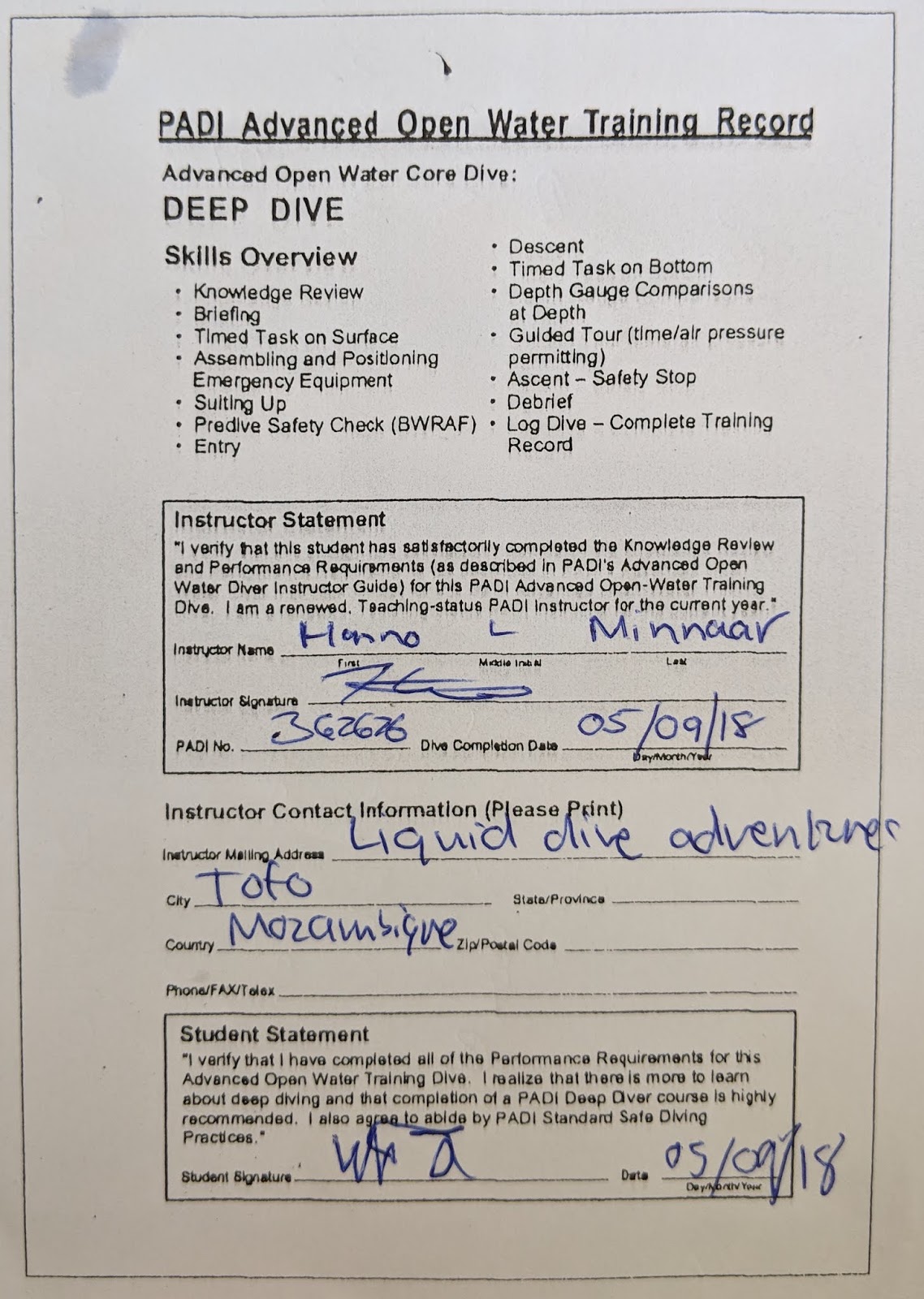Nhaguiua Primary School
 Underwater Africa works with the locals to create and maintain protected areas for mangroves and coral reefs within the estuary to help with conservation. Recently, they've started doing school visits with volunteers who buy extra school supplies to bring, and today it was clear why that was necessary. Many of the students had to share pencils and notebooks because there weren't enough to go around.
Underwater Africa works with the locals to create and maintain protected areas for mangroves and coral reefs within the estuary to help with conservation. Recently, they've started doing school visits with volunteers who buy extra school supplies to bring, and today it was clear why that was necessary. Many of the students had to share pencils and notebooks because there weren't enough to go around.We sat in on a Portuguese class for 7th graders, and at some tables there was only one textbook for three students. The kids were good about sharing though, and shockingly well behaved. They were learning about poetry, like the definitions of verse, stanza, monostich, couplet, triplet, and quatrain. The particular poem they were reading was rather dark, although the subject matter wasn't discussed. They were focused more on structure than content.
I tried to do a little analysis myself. For context, Mozambique has many coal mines, and during the colonial period there were human rights abuses there. The author, Marcelino dos Santos, is a revolutionary and former vice-president of Mozambique who helped found the left-wing political party Frente de Libertação de Moçambique (FRELIMO—Mozambican Liberation Front). FRELIMO is the dominant political party to this day and was responsible for the revolution which expelled the Portuguese in 1975.
The book this poem appeared in was published in 1987, during the 15 year civil war with the right-wing political party Resistência Nacional Moçambicana (RENAMO—Mozambican National Resistance). RENAMO was founded by a faction of former FRELIMO party members and was funded by the government of Rhodesia (modern-day Zimbabwe), which at the time was still controlled by a white minority. Apartheid was still in place in neighboring South Africa, and some accused the South African government of foul play following a plane crash that killed Mozambique's founding president Samora Machel in 1986.
Here's the poem followed by my best attempt at an English version---I had to translate it myself because I couldn't find one from a professional translator.
A terra treme
| A voz é surda e longa Na noite Que cobriu o homem Que morreu na mina Teu filho Teu pai Teu irmão Ficou imóvel Quebrado nos gases E nas pedras de carvão da mina Amarrado para sempre à mina A morte veio Com seu caminhar De quizumba a restejar. |
rescrever nas veias do teu corpo o destino doloroso dos homens da nossa terra deixando gravado a vontade do estrangeiro E não foi libertação Como o arrancar do milho novo Na terra que vai secar No fundo da mina A morte não te encontrou Calmo e sereno Foi espasmo de dor Como tua vida interna Folha queimada Na revolta constante Na terra Que o branco ocupou |
- Marcelino dos Santos, “Canto do Amor Natural”
And in English:
- Marcelino dos Santos, “Song of Natural Love”
And in English:
The earth trembles
| The voice is deaf and long In the night That covered the man That died in the mine Your father Your brother Stayed still Broken in the gases And in the coal of the mine Tied forever to the mine Death came With its walk Of a creeping wraith. | to re-write in the veins of your body the painful fate of the men of our land leaving recorded
the will of the foreigner
Like uprooting young corn In land that is going to dry At the bottom of the mine Death did not find you Calm and serene It was a spasm of pain Like your inner life Burned leaf In constant revolt In the land That the white man occupied |
Marcelino dos Santos appeals to the Mozambican reader's sense of black national identity. He uses the second person singular tense to engage the reader personally, and employs indentation, repetition, analogy, and diction to create a distinctly black African literary work.
The author emphasizes the reader's relationship to the black victims of human rights abuses in coal mines. First, he uses indentation and repetition to stress familial ties: "Your son", "Your father", "Your brother".
Then author draws an analogy between the veins of coal in Mozambican land and "the veins of your body", making clear that the reader he is addressing is a black Mozambican by contrasting "the men of our land" who suffered "the painful fate" from "the white man" who "occupied".
Lastly, the author uses the word "quizumba", a word for wraith or ghost in Mozambican Portuguese, rather than "fantasma" or "aberração" which would be more closely associated with spirits referred to in European Portuguese literature. This diction gives the spirits a more African and less European feel.
The result is a poem that harkens back to the anti-colonialist rallying cries of the 1970s, a call for unity against a common enemy in a time when civil war pitted black Mozambicans against one another. Its effective call for a black national identity places it in the canon of post-colonial Mozambican literature.




Comments
Post a Comment